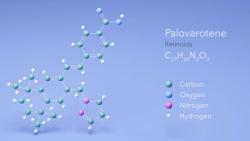
OR WAIT null SECS
- About Us
- Advertise
- Contact Us
- Editorial Info
- Editorial Advisory Board
- Do Not Sell My Personal Information
- Privacy Policy
- Terms and Conditions
© 2026 MJH Life Sciences™ , Pharmaceutical Technology - Pharma News and Development Insights. All rights reserved.
SOCMA Raises Concerns about Toxic-Substances Reform Bill
The Society of Chemical Manufacturers and Affiliates is raising concerns over a recently introduced bill in the US Senate, which seeks to reform the Toxic Substances Control Act.
The Society of Chemical Manufacturers and Affiliates (SOCMA) issued a statement raising concerns about the Safe Chemicals Act of 2010, a bill recently introduced in the US Senate that seeks to reform the Toxic Substances Control Act (TSCA). TSCA was enacted in 1976 to provide the US Environmental Protection Agency (EPA) with authority to require reporting, recordkeeping, testing requirements, and restrictions relating to chemical substances or mixtures. The Senate bill seeks to address EPA's limitations in exercising its authority and implementing measures under TSCA.
Sen. Frank Lautenberg (D-NJ), who chairs the Senate Subcommittee on Superfund, Toxics and Environmental Health, introduced the Safe Chemicals Act of 2010 on Apr. 15, 2010. The bill would “require safety testing of all industrial chemicals and puts the burden on industry to prove that chemicals are safe in order stay on the market,” according to a press statement by Lautenberg. “Under current policy, the EPA can only call for safety testing after evidence surfaces demonstrating a chemical is dangerous. As a result, EPA has been able to require testing for just 200 of the more than 80,000 chemicals currently registered in the United States and has been able to ban only five dangerous substances. The new legislation will give EPA more power to regulate the use of dangerous chemicals and require manufacturers to submit information proving the safety of every chemical in production and any new chemical seeking to enter the market.” A summary of the bill can be found here.
SOCMA represents contract manufacturers, including producers of active pharmaceutical ingredients and intermediates. Certain substances such as food, drugs, cosmetics, and pesticides are generally excluded from TSCA, but TSCA applies to approximately 83,000 chemicals, according to EPA. Although SOCMA agrees that TSCA should be reformed, it asserts that the new bill would be burdensome, particularly for small chemical manufacturers, and that the time and cost of implementation would negatively affect innovation.
“We are pleased to see that this bill makes an effort to address the need to prioritize chemicals, reduce animal testing, share information with state governments, and protect our country’s most vulnerable groups, including children,” according to a SOCMA statement. "However, the Safe Chemicals Act overreaches in its attempt to impose a new approach to regulating chemicals. The requirement that no less than 300 chemical substances be on the priority list at any given time is overly prescriptive. We have serious reservations with the minimum data-set requirement and extending it to all new uses of existing chemicals. We also have concerns with the expansion of the safety standard to industrial chemicals. This would create major challenges for SOCMA members, many of whom manufacture intermediates for which there may be limited exposures and many possible uses that are sometimes unknown to the manufacturer.” SOCMA added “any enhancement to TSCA should consider how the costs and delays associated with increased data submission requirements could impair the industry’s ability to innovate or jeopardize the sustainability of the chemical industry.”
SOCMA is urging Congress to consult with manufacturing stakeholders during the consideration and review of the new bill. “We look forward to further educating Congress about our concerns and impacts of this bill on our industry."
SOCMA has taken an active part in the TSCA reform debate. In a statement issued in August 2009, SOCMA emphasized the need to develop existing regulatory frameworks, particularly the Chemicals Assessment and Management Program (ChAMP), a voluntary program to which the United States committed in 2007 under the Security and Prosperity Partnership. SOCMA also said in its August 2009 statement that programs such as the European Union’s Registration, Evaluation and Authorization of Chemicals provide the US with the ability to leverage data to obtain information without enacting sweeping changes domestically. SOCMA detailed its suggestions for TSCA reform in March 2009.



